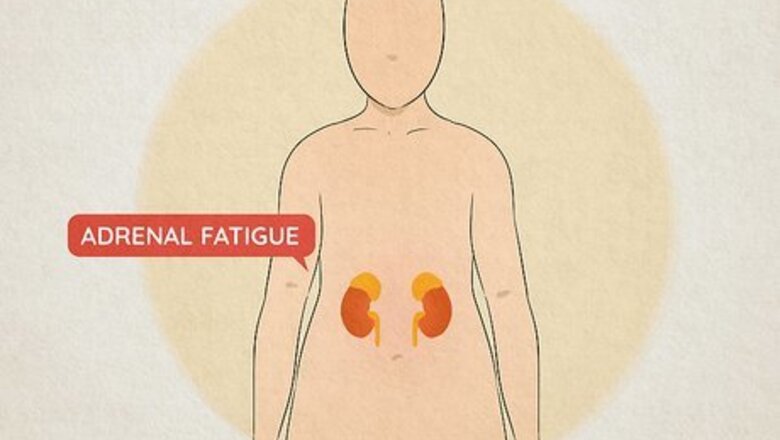
views
Is adrenal fatigue real?
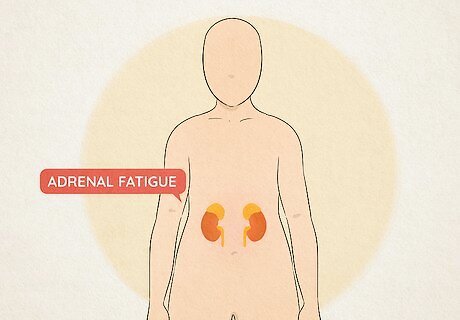
It's not a recognized medical condition, but that doesn’t mean your symptoms aren’t real. It can be frustrating to have a bunch of symptoms with no identifiable cause, and if you come across an article describing adrenal fatigue, it may sound like a perfect description of what you’re going through. Unfortunately, there’s no evidence this particular condition exists. This doesn’t mean that your symptoms aren’t legitimate or that there isn’t anything going on with your body. There are also dozens of other conditions that may lead to the symptoms you’re experiencing that have nothing to do with your adrenal glands. Even though these symptoms don't indicate adrenal fatigue, work with your doctor to find a treatment plan that helps you feel better. There is a condition called adrenal insufficiency (also known as Addison’s disease). This is where your adrenal glands can’t produce enough cortisol, which is the hormone your body produces when you’re stressed to repair tissue. While adrenal insufficiency sounds a lot like adrenal fatigue, these are not interchangeable conditions and they have different symptoms.
What is adrenal fatigue?
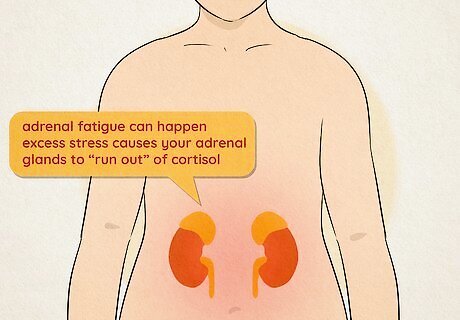
The theory is that excess stress causes your adrenal glands to “run out” of cortisol. Your adrenal glands produce cortisol when you’re stressed, but unless you have some exceptionally rare disorder, your adrenal glands won't run of out cortisol. This isn’t to say that stress isn’t bad for you, but it does mean that a lack of cortisol is highly unlikely to be the source of your symptoms. If your adrenal glands can’t produce enough cortisol, you may have adrenal insufficiency (Addison’s disease). Symptoms of this condition include fatigue, muscle weakness, loss of appetite, weight loss, hair loss, darkening of the skin, and abdominal pain. This is an exceptionally rare condition, so try not to worry and don’t assume this is the problem.
What are the signs of adrenal fatigue?
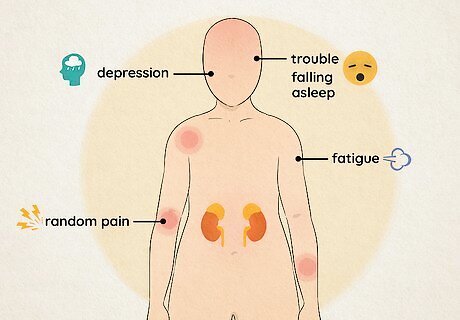
Supposedly, signs include fatigue, trouble falling asleep, and random pain. Some articles also suggest people with adrenal fatigue drink a lot of caffeine and experience anxiety. While adrenal fatigue may not be a recognized diagnosis, these symptoms could be indicative of another condition and you should definitely see a doctor to have them checked out. It’s hard for doctors to diagnose general symptoms like fatigue and insomnia. This is why it helps to be as specific as possible when talking about your symptoms.
How do you test your adrenal glands?
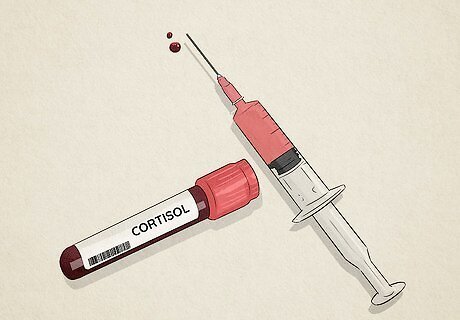
Ask your doctor for a blood test to check your cortisol levels. You can ask for a saliva or urine test instead if you don’t want to get your blood drawn. You need to test your cortisol levels in the morning, so expect your appointment to be early. Once the results come back, your doctor will be able to tell you if anything is going on with your adrenal glands. Adrenal disorders are exceptionally rare, so don’t assume something is wrong with your glands before the test comes back! If your body produces too much cortisol, you may have a rare condition named Cushing syndrome. Symptoms include unexplained weight gain, tissue deposits on your face and torso, pink or purple stretch marks, acne, and slow healing times after cuts or bruises. You could also ask your doctor for a cortisol stimulation test to see how your body responds to stress. This test requires two blood tests and an injection that stimulates cortisol production. Doctors use this exam to rule out pituitary tumors, adrenal insufficiency, and other rare conditions. You should have clinical symptoms or findings that suggest you have high cortisol levels since testing isn’t perfect and could give some false results.
How do you fix adrenal fatigue?

See a doctor first to get a diagnosis and blood test. If your doctor doesn’t give you a hard and fast diagnosis, try not to worry. It doesn’t mean your symptoms aren’t real, just that they don’t know what’s causing them yet. Your doctor will be able to rule out any potential issues with your adrenal glands and help you figure out what’s really going on. A variety of conditions can cause the symptoms that supposedly come with adrenal fatigue. You might consider asking your doctor about anemia, sleep apnea, autoimmune diseases, viral infections, kidney disease, and liver disease.

Lifestyle modifications may help ease your pain. A lot of the adrenal fatigue symptoms can be the result of a poor diet, a lack of sleep, and a sedentary lifestyle. To start, try cutting back on red meat and sugary drinks. Eat a healthy, balanced diet full of lean protein and vegetables to see if your symptoms ease up. When it comes to fitness, try to get at least 150 minutes of exercise a week to improve the way you feel. Reduce your stress levels using deep breathing exercises, yoga, or guided meditation. It also helps to set time aside every week to pursue the hobbies you care about! Getting enough quality sleep is also extremely important. Most adults need at least 7-9 hours of sleep every night. Try to go to bed and wake up at the same time every day. If you tend to wake up frequently in the middle of the night, talk to your doctor.
What supplements help adrenal fatigue?
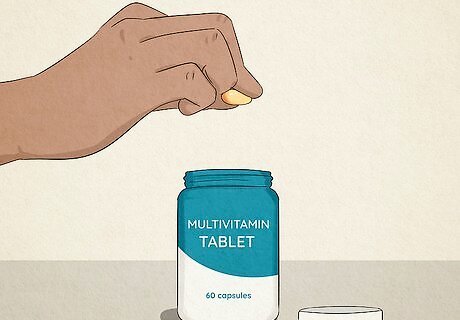
Taking a daily multivitamin may help with your symptoms. A lot of doctors and holistic healers sell supplements for adrenal fatigue. Unfortunately, these supplements are not monitored or tested by the FDA, and you may end up doing more harm than good if you try them without getting approval from your doctor. Instead, stick with a regular multivitamin. When it comes to that daily vitamin, do not take any vitamins designed specifically for adrenal fatigue. Just take a basic daily multivitamin that you find at the pharmacy. If you take any kind of cortisol replacement or cortisol supplement for adrenal fatigue, you may be putting yourself in harm’s way. Excess cortisol is dangerous, even in small doses, and you may increase your risk for osteoporosis, diabetes, weight gain, and cardiovascular disease.


















Comments
0 comment